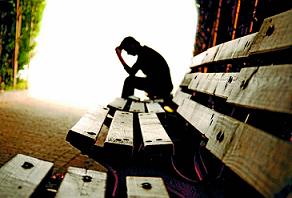Adolescence: All About Change
 Several overlapping topics fall under the rather large umbrella of adolescent psychology. All of these have to do with ‘change’, which seems to be the key word for this phase of life. Of course, all of childhood is a period of tremendous growth and change, and we adults would like to feel that we are changing too! Yet the sheer rate and irregularity of changes make adolescence, in particular, a unique developmental stage. Adolescence is characterized by:
Several overlapping topics fall under the rather large umbrella of adolescent psychology. All of these have to do with ‘change’, which seems to be the key word for this phase of life. Of course, all of childhood is a period of tremendous growth and change, and we adults would like to feel that we are changing too! Yet the sheer rate and irregularity of changes make adolescence, in particular, a unique developmental stage. Adolescence is characterized by:
- hormonal and other chemical changes in the body
- changes in physical appearance which are sudden and obvious to others, signalling sexual maturity
- emotional changes such as increased excitement, anxiety, elation, depression
- new behaviour patterns such as aggression, taking risks, seeking thrills
- new psychological issues such as seeking a sense of identity, rebelling against authority, having romantic interests, increased self-consciousness, greater dependence on peers
- social changes such as desiring and being given more autonomy and independence
- cognitive changes, whether quantitative or qualitative, that allow for significantly higher levels of learning and understanding
- hormonal and physical changes, and the sexual awakening they signal, are a powerful set of forces
These are universal physical markers of adolescence, and, to a great extent, the emotional and behavioural effects they have, might be expected to be similar across cultures.
How can we deal with all these changes?
Give your students more real responsibilities.
- Get adolescents to be responsible not only for their own learning but also for things outside themselves. Allow for the importance of friendships among adolescents. Many of us adults regard such friendships with mild suspicion, and some schools have a policy of deliberately breaking up friendships each year by changing the class composition. As teachers, we often have a tendency to ‘separate’ friends, and we may have sound reasons for this. But we risk alienation if we deny the importance of peer relationships, and further, we are denying the benefits of the peer group to a student’s emotional life.
Don’t use comparative evaluation.
- Our whole system of education in India is based on performance and comparison, right from a very young age. Adults often tell toddlers, “Let’s see who eats faster”; “Hurry up or else we will finish first” and “See how nicely she plays-why can’t you play like her?” So when children turn into adolescents, you would think they would be used to it, impervious to the constant emphasis on comparative evaluation in almost every aspect of their lives! But it would also create a strong habit in them of evaluating themselves in comparison with others. Plenty of research shows that this is harmful to their growth and learning.
Don’t clamp down on girl-boy friendships.
- This is possibly the hardest ‘don’t’ to follow. Sometimes we are pushed into policing, banning and disallowing any sort of contact between girls and boys. This is a mistake. We are ignoring the fact that most of the adolescent’s thoughts and feelings are directed towards physical attraction and romanceâ a natural, biological movement. Clamping down is too easy, and will not work in the long run. We must think creatively about how to manage this issue. Initiate regular dialogues in which adolescents can express themselves easily.

